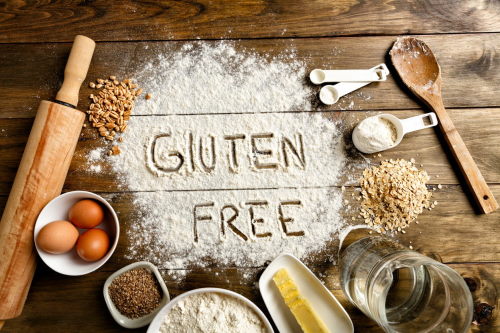Lisa Donaldson, Voome’s lead dietitian, recently responded to some questions that those with celiac disease, particularly those recently diagnosed with the disease, will find helpful. Celiac disease has been described as an auto-immune disorder where the ingesting food containing gluten damages the small intestine. As such, people with this disease need to stick to a diet that is gluten-free. The series of concerns people with the disorder have to include wanting to know what they can eat, what happens to their favorite treats and other questions concerning the sudden need to change diet.
BREAKING: 1 Cup of This Melts Belly and Arm Fat (Take Before Bed)
While explaining what a gluten-free diet is and the people who need to adopt it, Lisa mentioned that gluten is a protein contained in some grains like rye, barley, and wheat. The immune system of people who have celiac disease attacks the small intestine lining whenever they consume any food that contains gluten.
The reaction is quite serious and it could hinder nutrient absorption since the attack damages the intestinal lining and also causes its inflammation. As such, she emphasized that people who have celiac disease need a gluten-free diet. In addition, she mentioned that there are people who do not have the celiac disease but are still sensitive to gluten. Those people, according to her, can reduce the amount of gluten contained in their regular diet.
For other people who do not have the disease or any such sensitivity, she mentioned that it is not beneficial health-wise that they exclude gluten from their diet. As a matter of fact, she said it might have negative effects for such people because if it is not appropriately managed, their bodies’ fiber component might become low.
Signs Of Celiac Disease
Lisa was also asked about the symptoms and signs of celiac disease. She replied that those who have celiac disease may experience abdominal pain, belching, fat inside stool, nausea, flatulence, vomiting, diarrhea or heartburn. A late diagnosis, i.e. a diagnosis that comes when the person is advanced in age, can cause fatigue, bone loss, and even malnutrition. Children with celiac disease may have slow growth or delayed puberty. It can also appear as dermatitis or skin rash.
When asked if there are any tasty foods that people sticking to the gluten-free diet can eat, she mentioned that a lot of whole foods are good choices and that includes a lot of vegetables and fresh fruits, legumes, tofu, and lean meat. Also, people sticking to a gluten-free diet can eat healthy fats such as seeds, avocado, and nuts.
For carbohydrates and grains, they can eat different foods that are gluten-free such as polenta, sorghum, millet, amaranth, quinoa, and teff. For treats, she suggested macarons, pavlova, dark chocolate, and Turkish Delight.
Lisa further added that a diet that comprises of a lot of whole foods and little quantity of processed foods will make it easy for someone who has celiac to have a balanced supply of nutritional foods without having to take supplements. Thus, it is advisable that you consult an accredited dietitian the first time you get diagnosed. That will help you understand how to meet your nutritional needs.
Tips For Dining Out
For people who want to dine out, Lisa has some tips. First, she advised them to call the restaurant and make reservations prior to their visit while also making known their specific dietary requirements. Also, she advised that if a celiac is confused as to what to eat when dining out, the best thing is to opt for fish or chicken or meat with salad or veggies.
TRENDING: Big Pharma In Outrage Over This Breakthrough Natural Painkiller
Also, she said that eating grilled fish is a good option but they should avoid ordering potato chips. When faced with a choice between deep-fried food and BBQ, baked or grilled, she advised that a person with celiac disease should opt for the latter. Also, she advised them to stay away from sauces as hidden gluten are usually found in sauces. If you want extra filler, she suggested ordering steamed vegetables. For desserts, she advised that celiacs should take pavlova, sorbet, macarons, and nougat.
Lastly, while dining out she advises that someone sticking to a gluten-free diet should be the last person to place your order. That way the person can ask any question and the waiter can easily go back to make such an inquiry known to the chef should the need arise.









